From individual to organization
On a sunny morning, my journey goes to the south of the country. There I report to a customer I visit more often Occupational Assessor examine. Despite the fact that the cooperation is very pleasant, the employer prefers not to see me too often; After all, this often means that there are more employees who are unable to carry out their own work for a long time. And as an employer, you naturally want to have as little as possible to do with staff incapacity for work.

After speaking with the employer, I speak with the employee: a 55-year-old man who has worked for the current employer all his life and has had little to no training. He works as an Operator on a production line. His work consists of supplying and removing raw materials and troubleshooting breakdowns. With some time pressure, because, after all, downtime is production loss. Physically demanding work, in other words...
In the conversation, the employee tells me that his physical complaints are preventing him from keeping up the work, so he works fewer hours. When I then go over his workload profile with him, we come to the conclusion that his own work no longer fits his physical situation. We talk about the future: if his own work doesn't work out, what then? He should not think about this: "this is what I have always done", "I don't know what else I could do", "who would want me?" and "here I am at home and in my place". In talking with the employer and the employee, I express my concerns; for now and in the future. Is it wise for the employee to return to physically demanding work? Is this sustainable? In addition to reintegration in the employee's own work, I suggest looking at reintegration in other work, outside the employee's own employer. Despite the employee's desire to stick to returning within the company, he understands this choice.
Two weeks later, I'm at the same employer and I'm again dealing with an employee who is a little further along in his career, but can't keep up the work....
An individual problem or an organizational problem?
This kind of situation is what I come up with Occupational Assessor bee Puls often against. Despite the fact that all conversations are interesting and fascinating, I don't leave with a good feeling when I hear the employer say after the appointment: "we'll see each other again soon, unfortunately more employees are long-term incapacitated for work." In itself positive for me as Occupational Assessor: I get to know the organization quickly and well and it brings in money... But of course it doesn't feel satisfying: I want to make the situation better for the employer and the employee! Could I do more? Can't I help this employer on its way, so that we can limit these kinds of agreements?
More than just a Occupational Assessor
This way of thinking led me to the training for Registered Risk Advisor Sustainable Employability (RADI) of NiDi Bedrijfsopleidingen! In this kind of situations I noticed that I did not have enough knowledge and skills to discuss Sustainable Employability of staff and the future sustainability of the organization with the employer on a strategic level. After all, it is essential that an employer thinks about the future, both in the market and with the staff: how do I ensure that my staff remains Sustainable Employability in the future? How do I remain future-proof when my employees' work is physically demanding and a large proportion of my employees are already elderly? As a rule, this goes beyond a fruit bowl in the office or free gym memberships. It is about investing in the staff and a mutual responsibility of the employer and the employee. The RADI training has given me tools to put together the puzzle of sustainable employability: which pieces fit well together at this organization? How do I complete the picture?
I have now completed the training and I can officially call myself 'RADI'. Now I know how to look at organizations differently and how I can 'trigger' employers to think in the RADI way: focused on the future. I also know how to challenge employees to take ownership of their careers: what do you want? How do you see the future? This fits perfectly with my work as a Occupational Assessor, especially in the situation mentioned above.
I too am working on my own sustainable employability
I still visit organizations where I will probably return in the long run. But now I'm having other conversations; The client appreciates this and now uses me as a point of contact and as a sparring partner for all questions in the field of sustainable employability. I think along at a strategic level to help the customer move forward.
The title RADI is an essential complement to my role as Occupational Assessor. Now I'm not alone Occupational Assessor in the field of People, Work and Income, but also an advisor for the organization. In this way, I am also working on my own Sustainable Employability, for now and in the future. After all, change is the only constant.
Would you like to know more about Puls and what our Employment Experts can do for you? Please contact us or take a look at the website.


